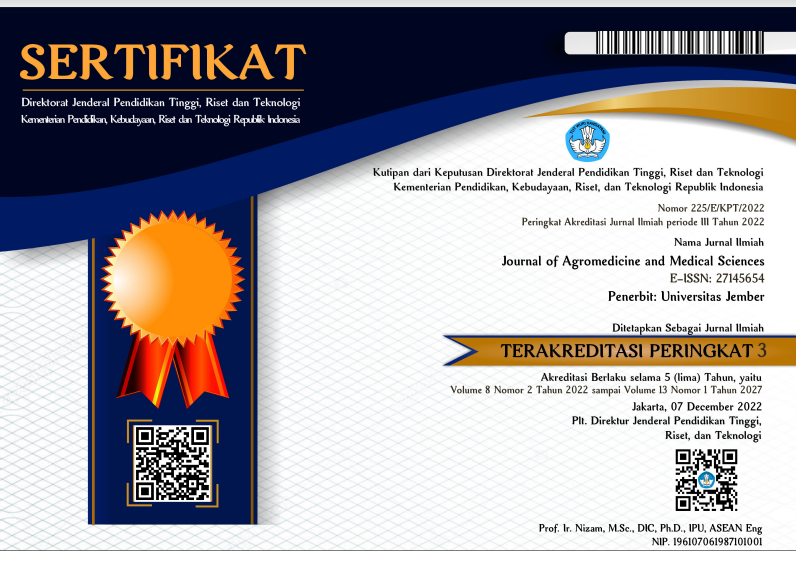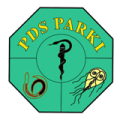Histopathological Changes in the Wistar Rats Liver Treated with Bangle (Zingiber cassumunar Roxb.) Rhizome Ethanol Extract during Acute Toxicity Test
DOI:
https://doi.org/10.19184/ams.v4i1.6327Abstract
Malaria is still an infectious disease that can not be eradicated. The presence of antimalarial drug resistance case encourages the research on herbal plants that are expected to be a complementary therapy drug of malaria, one of them is bangle (Zingiber cassumunar Roxb.). This research aimed to investigate the effect of bangle (Zingiber cassumunar Roxb.) rhizome ethanol extract to the histopathological changes of Wistar rats liver during acute toxicity test. This research type was true experimental laboratories with posttest only control group design using four treatment groups (given dose 42,609 mg/200gBW + Tween 1%, 213,045 mg/200gBW + Tween 1%, 426,09 mg/200gBW + Tween 1%, and 852.18 mg/200gBW + Tween 1%) and one control group (given 1% Tween). Each treatment groups consisted of five male rats and five female rats. The final mean score of hepatocyte damage as the research data was analyzed by One-Way ANOVA test and showed that p=0,084. It indicated that there was no significant difference of liver histopathology results between groups.
Keywords: malaria, bangle rhizome, acute toxicity test, liver histopathology






















